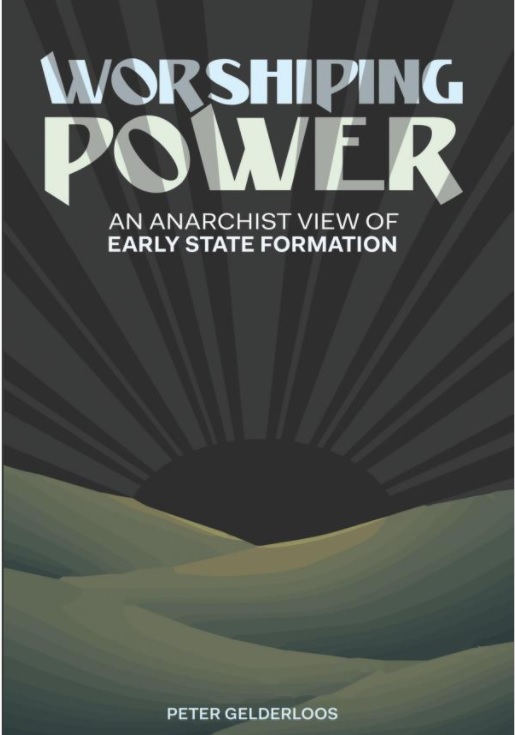 Reviewed: Worshiping Power: An Anarchist View of Early State Formation, by Peter Gelderloos (AK Press, 2016), 247 pages, $16.
Reviewed: Worshiping Power: An Anarchist View of Early State Formation, by Peter Gelderloos (AK Press, 2016), 247 pages, $16.
To lose oneself in a book is a pleasure. In Worshiping Power, however, one feels instead simply lost.
Gelderloos wanders through thousands of years and across several continents without any clear direction or obvious destination. The subject is state formation, but the approach is opaque and the final product confused. This book is neither a history, nor a taxonomy, nor a theory, nor even simply an argument, but a mountain of evidence piled together willy-nilly. It is occasionally fascinating, but more usually perplexing. Slowly, obliquely, some underlying themes emerge, but it is not until the final chapter that we encounter anything as definite as a thesis statement.
Gelderloos’ point, it turns out, is that there is nothing necessary, inevitable, or especially rational about the emergence of states: “state formation is a multilineal process and not a teleological, progressive evolution.” There are, he concludes “as many pathways to state formation as there have been states in the history of the world.” This very diversity “completely refutes classical statist doctrine, both Hobbesian and Lockean variants, as well as Marxist and primitivist doctrine about state formation, and it seriously problematizes environmental determinist theories of state formation.” He does not put it this way, but what he suggests instead is that there exists an elective affinity between certain authoritarian cultural conditions and statist political structures. (Religious attitudes receive special attention in his treatment; hence the volume’s title.) That is an interesting and, I think, entirely plausible idea.
At times, however, Gelderloos slides toward a kind of cultural determinism, and disastrously pushes the notion to the point of outright tautology: “Placed in the same adverse situation, a society with anti-authoritarian, cooperative, and reciprocal values will find an anti-authoritarian solution, while a society that values hierarchy may likely form a state.” On that same page, he puts it more strongly, adds in primitive accumulation, and reverses the cause and effect: “economic accumulation is inconceivable without the hierarchical structures and spiritual values that states and proto-states create.” So, then: Authoritarian cultures produce states; states produce authoritarian cultures. That hardly qualifies as a revelation. In fact, if the circle is as tight as Gelderloos suggests, its explanatory value vanishes. “Authoritarian culture” is not an answer to the question of state-formation, if by authoritarian we simply mean state-forming. The question, then, may be better put as, “why do some societies have state-forming cultures, and others do not?”
Someone could, I am sure, answer that question persuasively. Gelderloos, unfortunately, has not.
Kristian Williams is the author of Our Enemies in Blue: Police and Power in America, American Methods: Torture and the Logic of Domination, and the forthcoming “Between the Bullet and the Lie”: Essays on Orwell. He is presently at work on a book about Oscar Wilde and anarchism.
